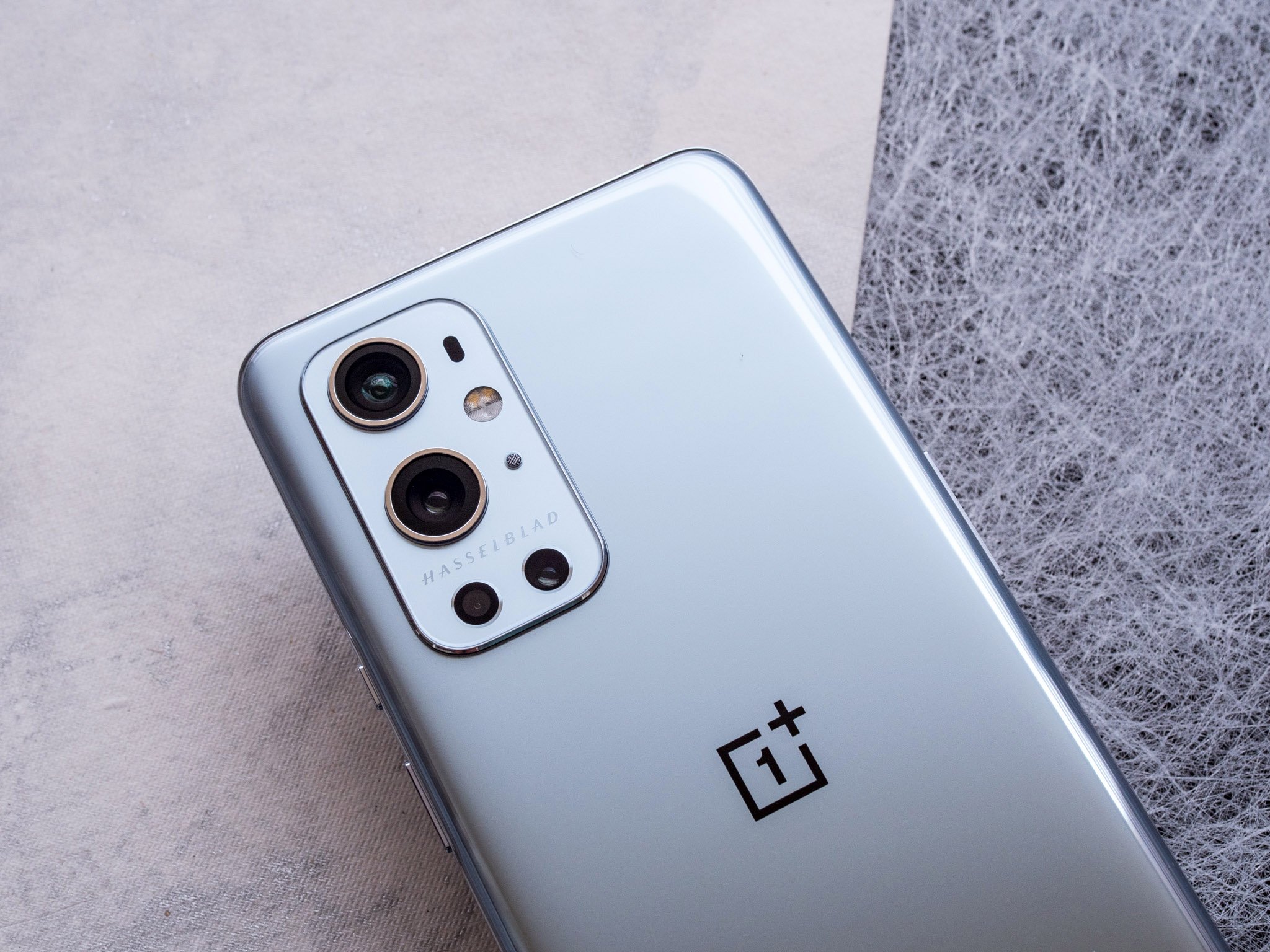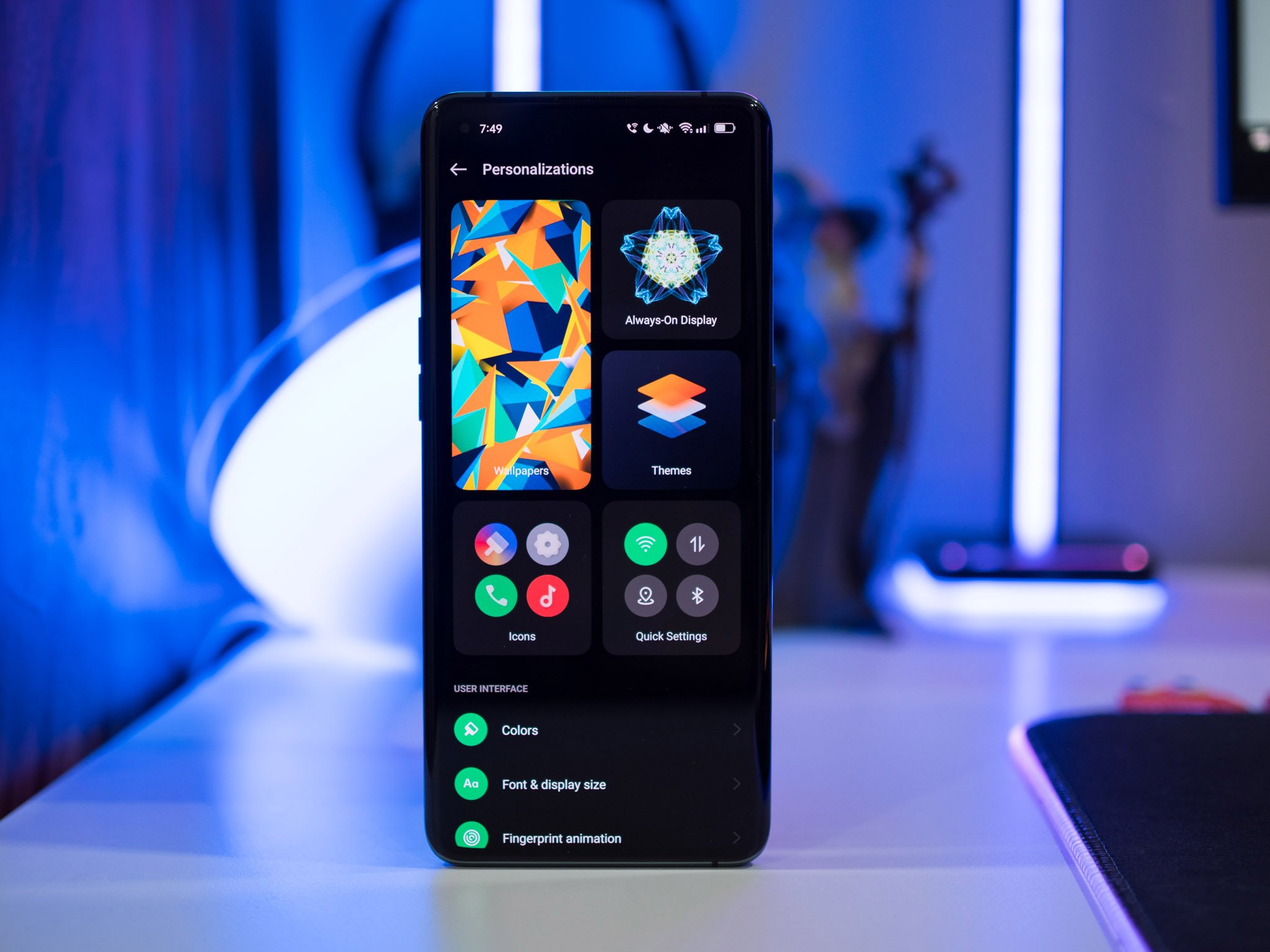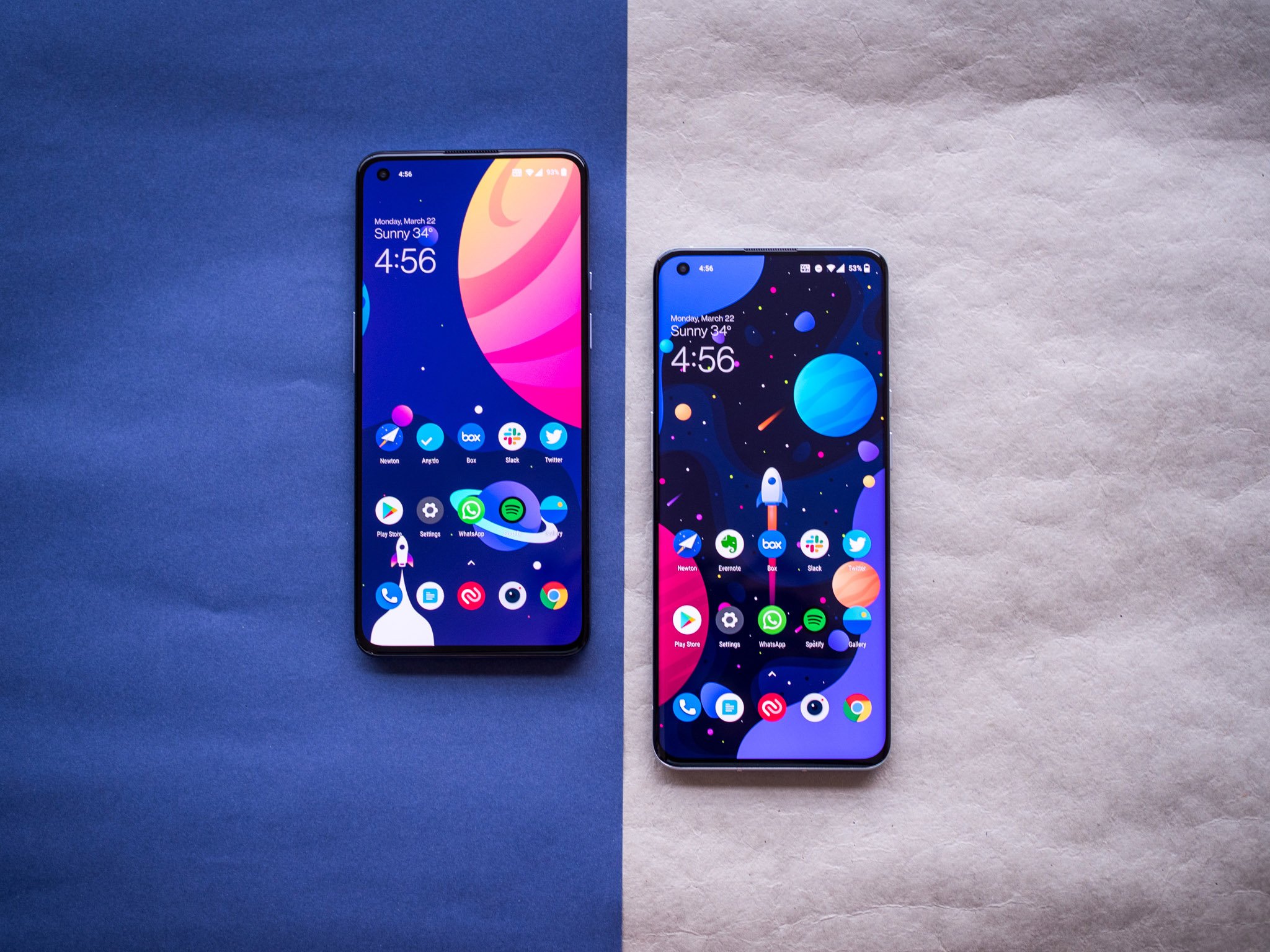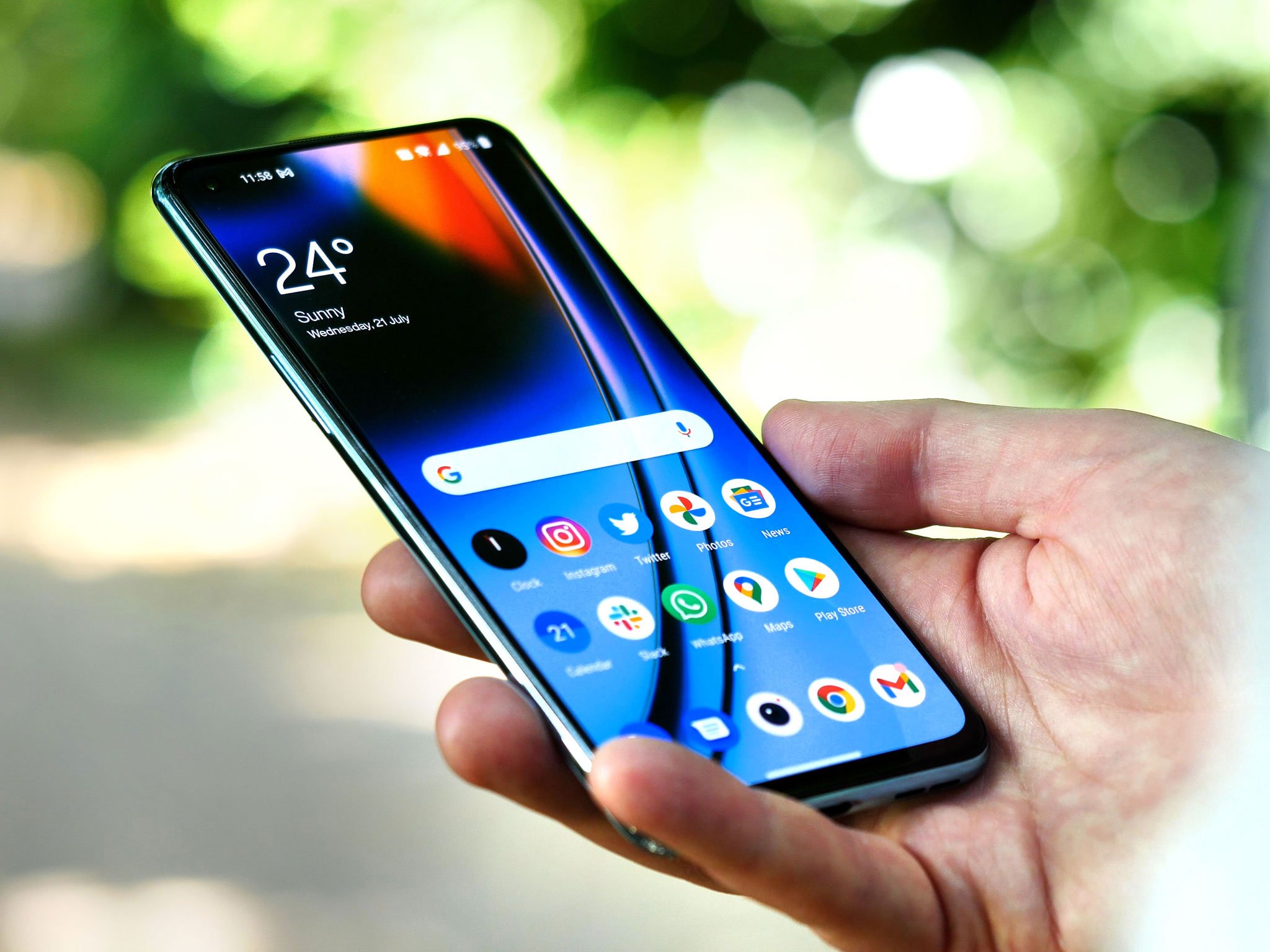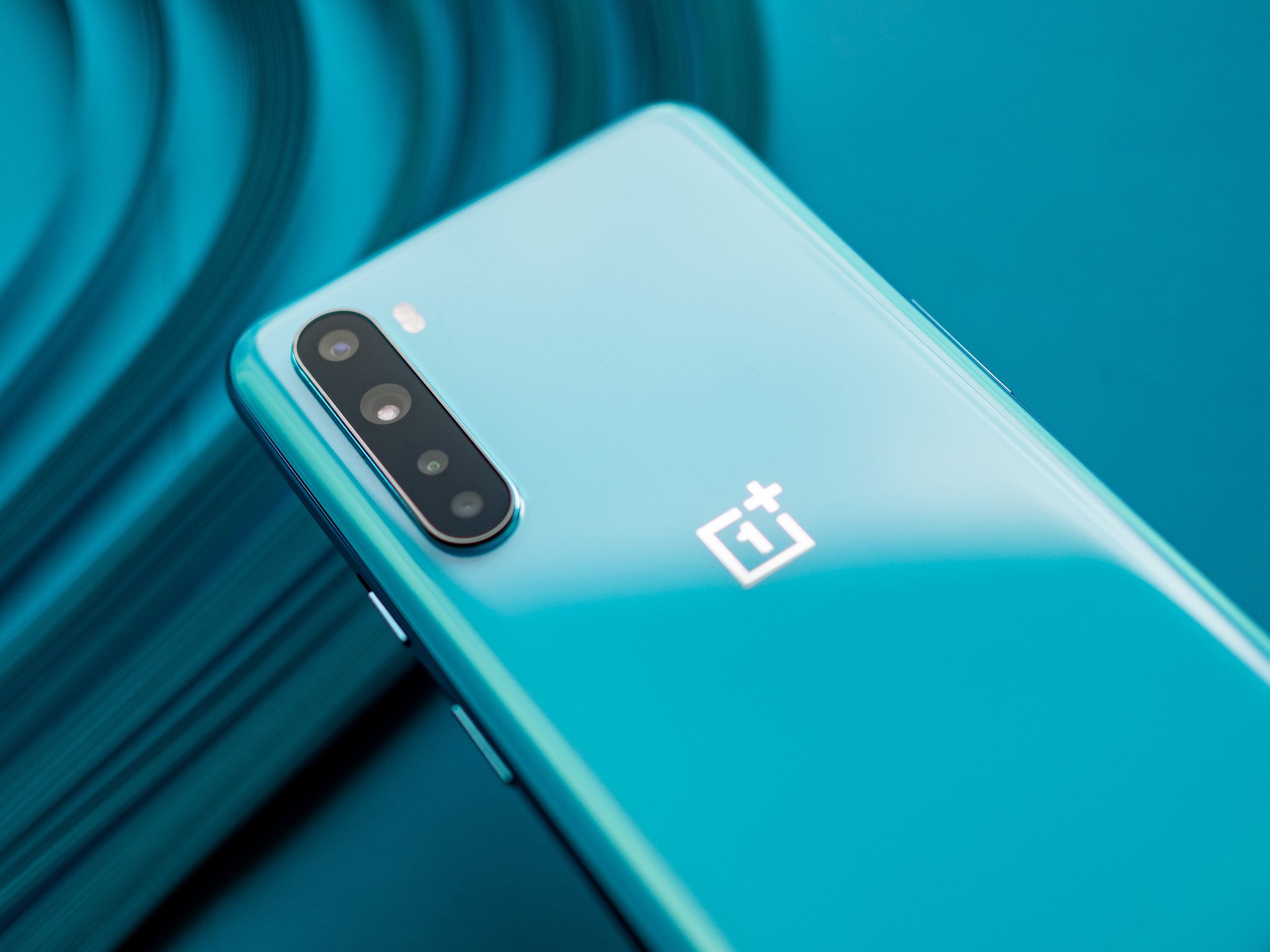OnePlus 10: Specs, rumors, and what we want to see
OnePlus went from strength to strength in 2021, but we've got a long wishlist for the upcoming 10 series.
OnePlus's identity is in flux. 2021 was one of its strongest years ever, with the OnePlus 9 Pro nailing the flagship end while the Nord 2 and N200 5G killed it in the mid-range and budget categories. But 2022 will bring some major changes for the brand, starting with the OnePlus 10.
On the plus side, the OnePlus 10 and OnePlus 10 Pro are confirmed to use the blazingly fast Snapdragon 8 Gen 1. But they'll also be the first to use a unified OnePlus/OPPO OS that combines OxygenOS and ColorOS into one software experience. By integrating much more deeply into OPPO, OnePlus may lose part of the identity that garnered such a loyal following.
We've seen some official info on the 2022 flagship, plus a ton of unauthorized leaks and rumors that detail everything from cameras to charging speed, design to display. Here's everything we know, suspect, or want to see in the OnePlus 10 and OnePlus 10 Pro.
Jump to:Release date and pricingWe have an official OnePlus 10 Pro release date, courtesy of CEO Pete Lau. In a Weibo post, he confirmed it will arrive in January 2022. Depending on when the Galaxy S22 and Galaxy S21 FE arrive, the OnePlus 10 Pro could be the first major phone launch of the year.
We say "could be" because the phone's January launch may only apply to the Chinese market. Leaker Max Jambor tweeted a hypothetical release timetable showing the Pro would arrive in January in China but would only release globally in March or April 2022.
Interestingly, most leaks or official announcements have only touched on the OnePlus 10 Pro, not the OnePlus 10. It's possible that the base model could ship later than the Pro model, which isn't something you see very often in the phone world.
The OnePlus 9 arrived in late March 2021, the OnePlus 8 in late April 2020, and the 7 in late May 2019. The brand's phones keep drifting earlier in the calendar. Moreover, OnePlus didn't release a global "T" phone in 2021, opting instead to release the OnePlus 9RT in limited Asian territories. So it makes sense the brand would try to build some 2022 profits as quickly as possible.
Why the timed China exclusivity? Most likely because of the software situation. OnePlus phones get ColorOS in China and OxygenOS in other territories. In China, the devs can simply push out the current ColorOS 12 build on new hardware; but everywhere else, they may need more time to implement the new hybrid Color/Oxygen software.
As for pricing, we haven't heard any leaks on that front. This year's phones cost $729/629 and $969/829, and current leaks suggest these phones won't offer major spec upgrades. Both phones will likely have competitive prices compared to the S22 and iPhone 13 series.
Design and cameras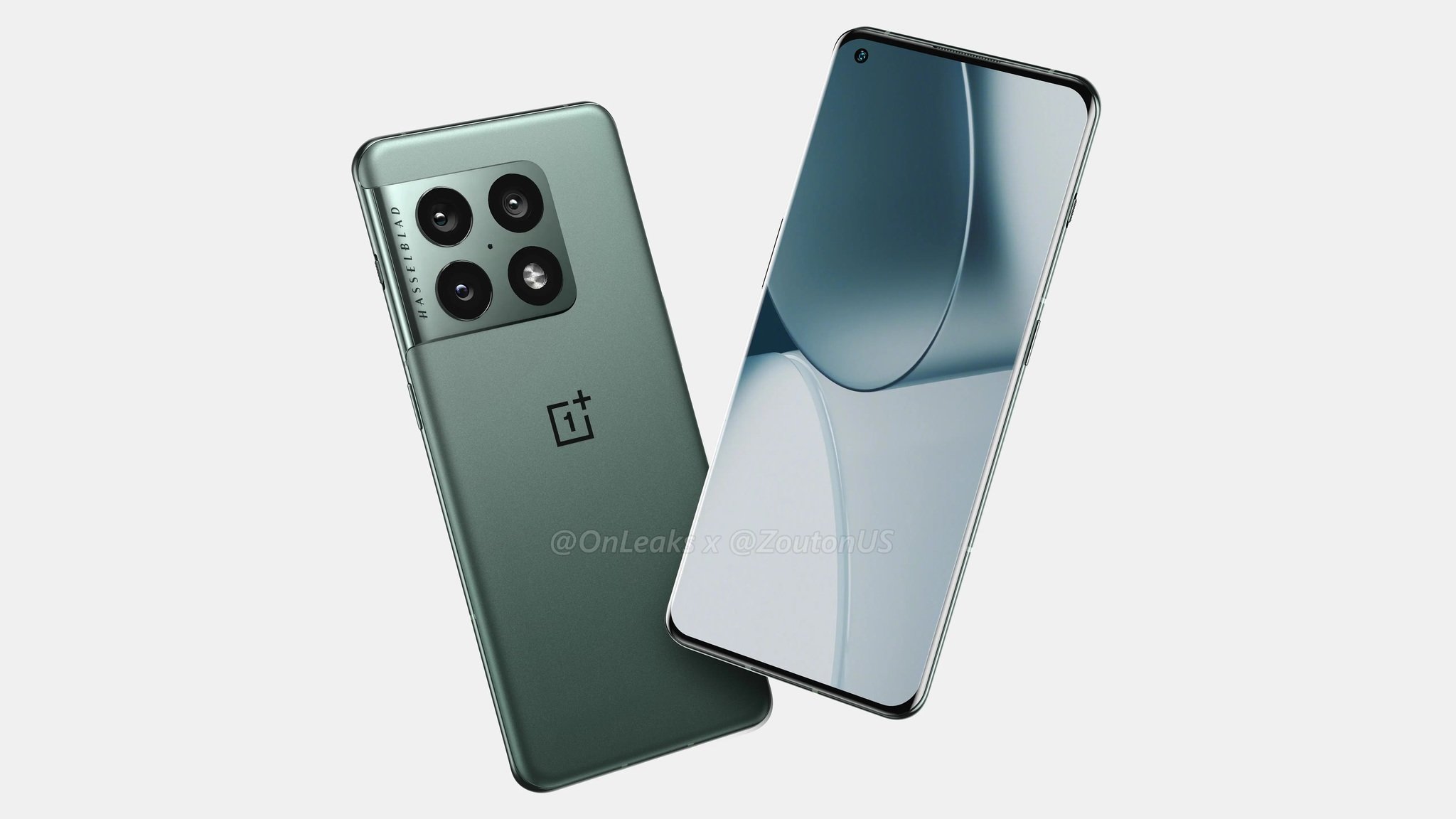 Leaked renders of the OnePlus 10 Pro
Leaked renders of the OnePlus 10 Pro
Assuming a recent OnePlus 10 Pro leak proves accurate, the 2022 flagship will have a similar design to its predecessor - except for the camera module. While the 9 Pro had a tall module that sat isolated in the top-left-back, the OnePlus 10 Pro module may have a square shape that attaches directly to the side of the phone.
In terms of cameras, another OnePlus 10 Pro specs leak suggested the phone will have a 48MP main sensor, 50MP ultra-wide sensor, and 8MP telephoto lens with 3.3x zoom. Those numbers all equal what the OnePlus 9 Pro had, suggesting the brand is mostly standing pat.
We had hoped OnePlus would push out a superzoom camera, or periscope telephoto lens, for the 10 Pro. We weren't impressed with the current telephoto camera, which is weak in low light and lacks the resolution for any kind of useful hybrid zoom. As it is, the brand is losing some camera ground on Samsung and other OEMs.
You'll also miss out on the 9 series' 2MP monochrome sensor that gave extra detail for black-and-white shots. But that's a fairly gimmicky tool that most people never bother with. We're glad to see that OnePlus will avoid those kind of "sticker cameras" this year, and stick to a core set of three sensors.
The one upgrade is for the selfie camera, which is once again a hole-punch cutout in the top-left of the display. While the 2021 phone has a 16MP lens, you'll allegedly get a 32MP sensor with the OnePlus 10 Pro. Selfies were a weak point of the 9 Pro; we hope this upgraded sensor will give you new tools like 4K video recording, Nightscape, or a wider angle than before.
If these camera specs prove accurate, it's likely that the OnePlus 10 will also have 48MP and 50MP ultra-wide sensors, minus the 8MP telephoto lens. And it might get the upgraded selfie cam as well.
Specs and performanceMost rumors indicate the OnePlus 10 and 10 Pro will have upgraded batteries and charging speeds, plus a confirmed Snapdragon 8 Gen 1 CPU upgrade. But their displays and memory should remain largely unchanged.
The Snapdragon 8 Gen 1 is a 4nm chip - compared to the less-efficient 5nm Snapdragon 888 in the OnePlus 9 - that uses Arm v9 architecture. It features a Cortex X2 clocked to 3.0GHz, three A710 cores (2.5GHz), and four energy-efficient A510 cores (1.8GHz). These allegedly deliver 20% better performance and 30% improved energy efficiency over the 888 CPU.
Also, it has a brand-new Adreno GPU with 30% better gaming performance and 25% better efficiency (according to Qualcomm's benchmarks). Add in an X65 modem for universal 5G, Wi-Fi 6E, and Bluetooth 5.2, and it's ready for blazing-fast connectivity as well.
Rumors indicate the OnePlus 10 Pro will use a 5,000mAh battery, up from 4,500 in the 9 Pro. One of the only downsides of the 9 Pro was its "sub-par" battery life, with frustrating idle draining whenever you had QHD+ resolution enabled. The improved Snapdragon efficiency and extra battery capacity should help on this front.
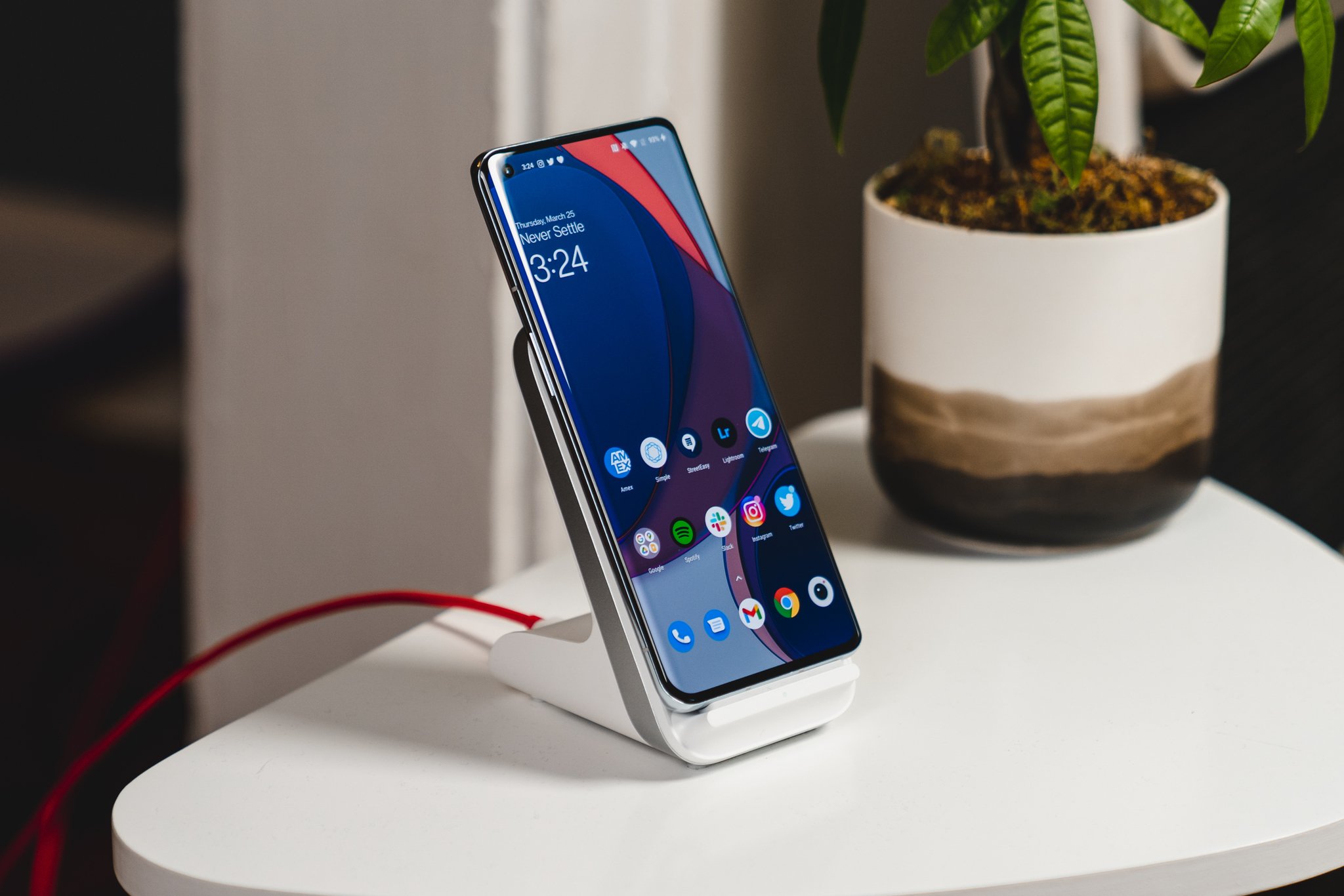 The OnePlus 9 Pro on the Warp Charger
The OnePlus 9 Pro on the Warp Charger
We also know the OnePlus 10 will get a massive charging speed boost; the only question is how much of a boost. One recent leak indicated the OnePlus 10 will have 125W wired charging - nearly double the 65W Warp Charge on the OnePlus 9 - and 65W wireless charging, a 15W upgrade.
But another Weibo leak indicates it'll have 80W wired charging, a smaller but still significant upgrade. And according to this source, it'll retain the same 50W wireless charging as before.
Back in 2020, OPPO revealed new 125W charging tech that could charge a 4,000mAh phone in 20 minutes without letting it run too hot. It also unveiled a AirVOOC 65W wireless charger that could refill that same phone to 100% in just 30 minutes. This lends some credence to the first leak, although the tech might not be ready for consumer use.
All of these leaks touch on the 10 Pro model. We're fairly positive the base OnePlus 10 will get the same charging upgrades, and possibly the same battery upgrade from 4,500mAh to 5,000mAh. We don't have confirmation of that, however.
With the OnePlus 10 Pro, we expect to see another 6.7-inch QHD LTPO AMOLED curved display with a 120Hz refresh rate, 12GB of RAM, and 256GB of base storage, based on the aforementioned spec leak.
Again, leakers haven't covered the base OnePlus 10 specs as of yet. But it isn't likely to downgrade from the 9's specs, so expect a FHD+ 120Hz display, 8GB of RAM, a base 128GB of storage, and an in-display fingerprint sensor.
SoftwareWe know for certain that OnePlus's OxygenOS and OPPO's ColorOS will merge into a unified OS starting with the OnePlus 10. OxygenOS 12 is already a watered-down ColorOS 12 thanks to the OPPO merger, which has disappointed some of its core fans. Given the OnePlus 10 will be the first to receive the new, unified OS in 2022, that could affect people's appreciation of the phone, no matter how powerful the hardware is.
Based on OnePlus's update policies for its flagships, the OnePlus 10 should receive three OS updates to ColorOS 15 in 2025, as well as four years of security updates through early 2026.
Features we want to seeWe have a pretty good sense of how OnePlus built its 2022 phones, how they'll perform, and the kind of software to expect. But there are plenty of intangible ways that the brand could improve on its 2021 lineup and compete more strongly with the likes of Samsung, Google, and Xiaomi. Here is our wishlist.
Better computational photography featuresThe OnePlus 9 Pro generally takes good-looking photos in most conditions with its primary and ultrawide cameras. And the most recent OnePlus flagship also benefits from nice-to-have extras like 120fps slow-mo video at 4K resolution. But the company's flagships have traditionally fallen behind the likes of Samsung and Apple when it comes to more advanced computational features. Sure, the Nightscape mode is great, but panorama and portrait modes are more error-prone than the competition in our experience.
And OnePlus also lacks anything as extravagant as Samsung's One Shot mode, which captures imagery from multiple cameras at once, automatically saving the best captures. However, as the company's partnership with Hasselblad grows, this is one area we'd expect to see further development.
Quicker security updatesAt the start of 2021, OnePlus had a pretty dire reputation for software updates on anything besides current-generation flagship phones. However, things have improved over the past year, with flagships now able to boast three years of platform updates and four years of security patches.
But one area where the company still lags behind is Android security patches. Unfortunately, its turnaround in this area has been patchy at best, even on its most expensive phones, typically slowing the pace of security patches a few months after each new phone launches. While not as sexy as new OS or feature updates, security is a vital part of supporting a device in the long term.
A vanilla OnePlus 10 that actually makes senseThe OnePlus Nord series has largely steamrolled over the "vanilla" OnePlus flagship for the past couple of generations, boasting comparable features and performance at a significantly lower price. The regular, non-Pro OnePlus 8 was a tough sell when considered alongside the OG Nord, and the same held true for the OnePlus 9 and Nord 2.
A good example for OnePlus to follow with the 10 series might be Google's Pixel 6. By all accounts, the smaller of the two Pixels, if the latest leaks are to be believed, only lacks a couple of major hardware features compared to the larger 'Pro." The smaller Google phone is set to include the same impressive 50-megapixel main and 12-megapixel ultrawide cameras as the Pro, with only the telephoto and selfie capabilities taking a slight downgrade.
Community-focused softwareOnePlus recently announced that OxygenOS and Oppo's ColorOS would share a common software foundation. The OnePlus Nord 2's OxygenOS 11.3 software is just ColorOS 11.3 with a fresh coat of paint for all intents and purposes. So as the two brands continue to work more closely together, we're hoping the community focus of OxygenOS won't be lost.
Innovative features like Zen Mode, which enforces digital downtime when you need to disconnect, have formed out of OnePlus's relationship with its community. As a result, OnePlus is now a major player in the Western smartphone market and, perhaps more importantly, officially a sub-brand of Oppo. So we're hoping this new status won't come at the expense of new community-driven features.
Competitive pricingOnePlus now has the scale of parent brand Oppo fully behind it - even more so than when it was, ostensibly, a completely independent brand. With that in mind, we're hoping this additional scale will help the OnePlus 10 series to strike a more competitive price point against the likes of Samsung, particularly in the U.S. market, where its last round of flagships was positioned perilously close to the Korean firm's mighty Galaxy S21 Ultra.
The problem for OnePlus in that situation is that Samsung boasted superior cameras and a larger battery, along with a longer software support lifespan. So to stay competitive at the high end in 2022, OnePlus will need to make up this cap either with more advanced hardware or lower prices.
